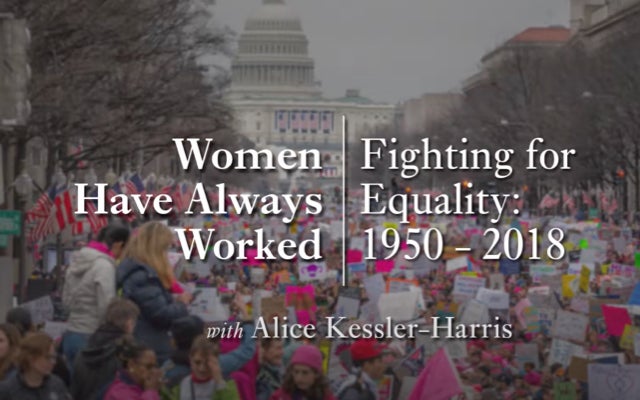
Women Have Always Worked, an edX Course Exploration, 1-10
Video Gallery
Women Have Always Worked: Fighting for Equality: 1950–2018.
An exploration from an online edX course.

Women Have Always Worked: Fighting for Equality: 1950–2018.
An exploration from an online edX course.